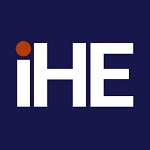No 2021:3: Cancer care and access to cancer drugs in Asia-Pacific
Thomas Hofmarcher (), George Keel and Peter Lindgren
Additional contact information
Thomas Hofmarcher: IHE - The Swedish Institute for Health Economics
George Keel: IHE - The Swedish Institute for Health Economics
Peter Lindgren: IHE - The Swedish Institute for Health Economics
Abstract: The report explores the state of cancer care and access to cancer drugs in Asia-Pacific. The report is divided into a main report which includes the introduction, the executive summary and the five sub-reports. The sub-reports are also available as separate reports.
14 countries and locations, referred to as “markets” in the report, are included in the analysis. They are grouped into 7 high-income markets (Australia, Hong Kong, Japan, New Zealand, Singapore, South Korea, Taiwan) and 7 middle-income markets (China, India, Indonesia, Malaysia, the Philippines, Thailand, Vietnam).
The report provides a comparative analysis of the 14 markets. It is divided into five sub-reports focusing on:
1. The burden of cancer: It shows that cancer patient numbers have been growing steadily in recent years along with the incoming silver tsunami. While more and more patients survive cancer in high-income markets, patient outcomes in middle-income markets are at best stagnating.
2. Health spending on cancer care: It shows that most markets miss the informal WHO target of public health spending of 5% of GDP. Cancer accounts for 5-9% of total health spending in high-income markets and only 1-2% (excl. out-of-pocket payments) in some middle-income markets.
3. Patient access to innovative cancer drugs: It shows that there is a big gap between the number of innovative drugs with regulatory approval and those with reimbursement approval. Almost 1 million patient life years are lost for every year of delay in reimbursement of 10 innovative cancer drug-indications across the markets.
4. Health spending on cancer drugs and unmet patient needs: Total health spending on cancer drugs ranges from $30 to $90 per capita in high-income markets and from $0.2 to $6.6 in middle-income markets (based on list prices). Despite higher spending on innovative cancer drugs, even high-income markets may struggle to meet patient needs.
5. Pricing policies for off-patent cancer drugs: Pricing policies for off-patent cancer drugs are not fully effective in many markets. Effective pricing policies for off-patent cancer drugs could free up substantial resources for re-investment in new innovative cancer drugs.
The report was funded by Merck Sharp & Dohme (MSD). Responsibility for the analysis, interpretations, and conclusions, as well as errors or omissions lies solely with the authors.
Keywords: cancer; cancer drugs; Asia; Australia; China; Hong Kong; India; Indonesia; Japan; New Zealand; Malaysia; Philippines; Singapore; South Korea; Thailand; Taiwan; Vietnam; healtheconomics; Health expenditure; Medicines; innovative; unmet patient; generics; biosimilars; patent; pricing; off-patent drugs
196 pages, First version: 2021. Revised: 2021. Earlier revisions: June 4, 2021, 2021, 2021, 2021, 2021, 2021.
Note: The report is divided into a main report which includes the introduction, the executive summary and the five sub-reports. The sub-reports are also available as separate reports.
Full text files
IHE-Report-2021_3a_.pdfFull text
IHE-Report-2021_3b_.pdfFull text
IHE-Report-2021_3c_.pdfFull text
IHE-Report-2021_3d_.pdfFull text
IHE-Report-2021_3e_.pdfFull text
IHE-Report-2021_3f_.pdfFull text
IHE-Report-2021_3g_.pdfFull text
IHE-Report-2021_3_.pdfFull text
Questions (including download problems) about the papers in this series should be directed to Annette Persson Dietmann ()
Report other problems with accessing this service to Sune Karlsson ().
RePEc:hhs:ihewps:2021_003This page generated on 2024-09-13 22:15:23.

